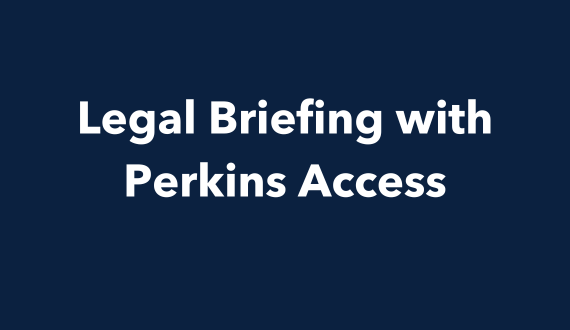Justice Department issues guidance on Web accessibility and the Americans with Disabilities Act
Share

Does the ADA apply to websites?
Yes, the ADA applies to the online world. The Department of Justice (DOJ) recently released new guidance on web accessibility, affirming that to comply with the ADA, state and local governments, as well as businesses open to the public, authors and content providers must ensure that their digital materials, services and goods are accessible to people with disabilities.
How do I comply with the ADA?
The best thing you can do is to follow existing recommendations and standards. The DOJ does not currently regulate how organizations should make their online programs, services, and goods accessible. Instead, the new guidance refers to both the Web Content Accessibility Guidelines (WCAG) and Section 508 for requirements, recommendations and best practices. Note that Section 508 specifies the accessibility requirements for (among other things) federal websites.
Is it the law?
The DOJ’s new guidance is not law, but web accessibility for people with disabilities is a priority for the department. The DOJ has taken the position, time and time again for 25 years, that the ADA applies to the Web, and has made it very clear that accessibility is the expectation, not the exception. These new guidelines demonstrate a commitment from the Department of Justice that accessibility is not an option in the online world, and that it will continue to ensure that all online services remain accessible to everyone.
Where do I begin?
Perkins Access partners with organizations all over the globe to improve digital accessibility and meet standards. As a division of Perkins School for the Blind, we live and breathe accessibility. Ready to find out where you stand and how you can create usable digital experiences that comply with the latest guidelines? Contact us to talk to a Perkins Access expert today.




